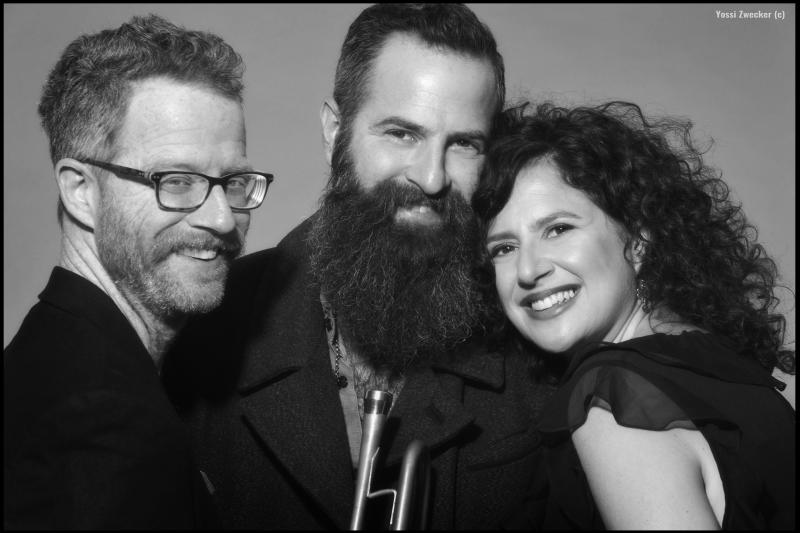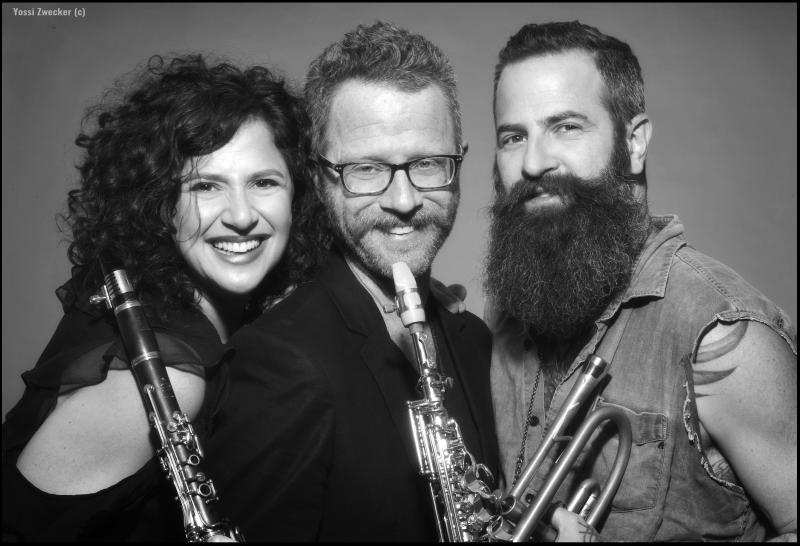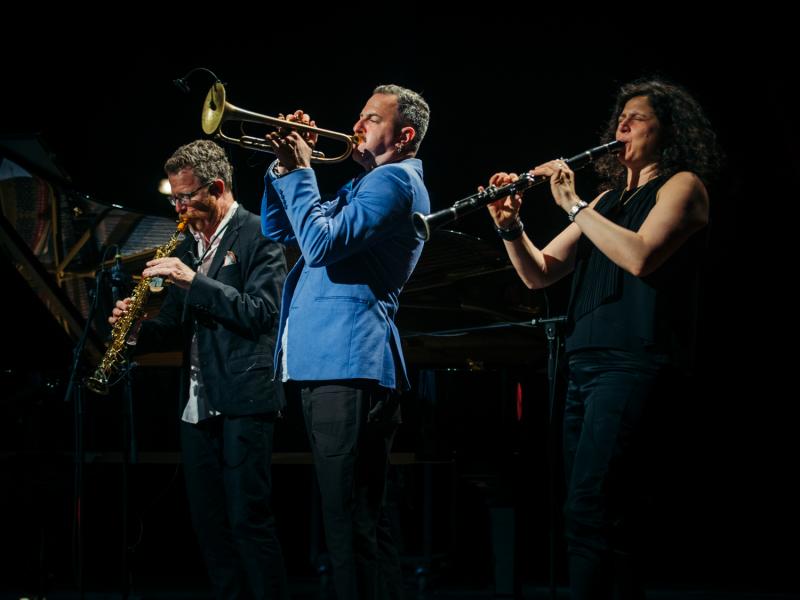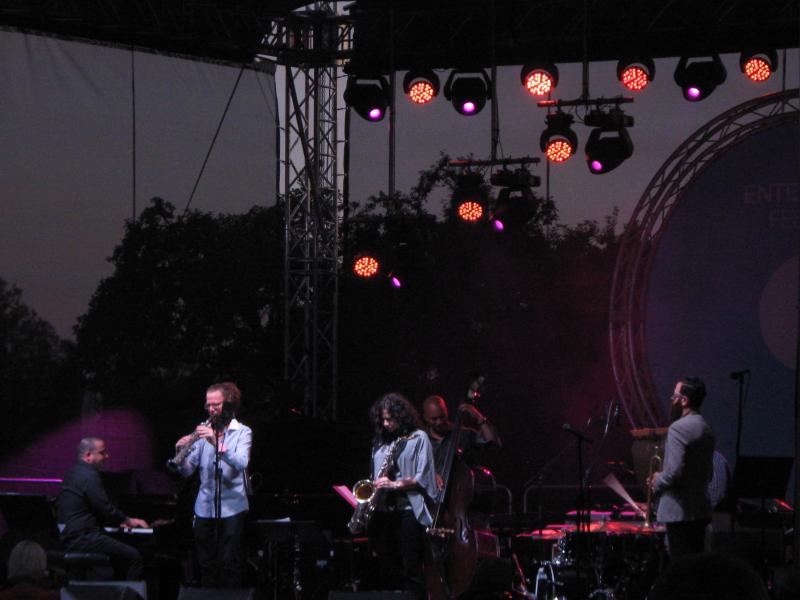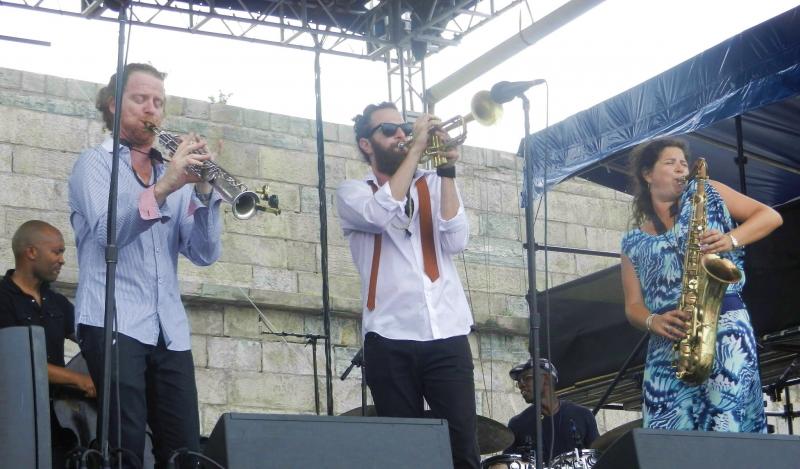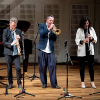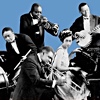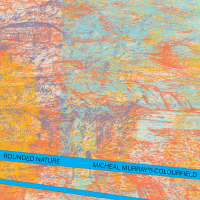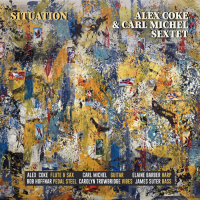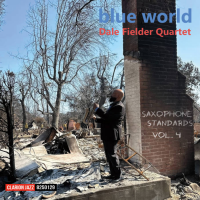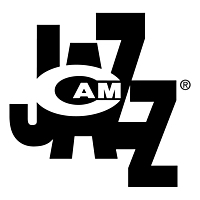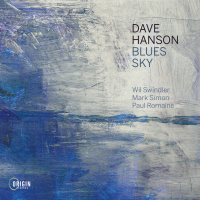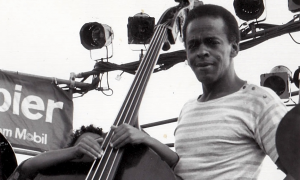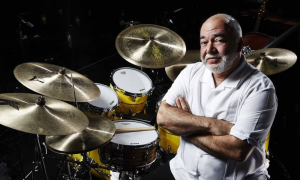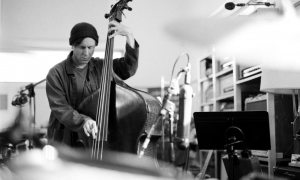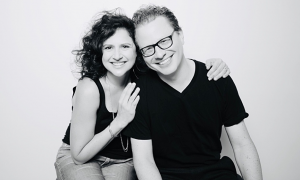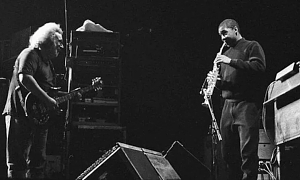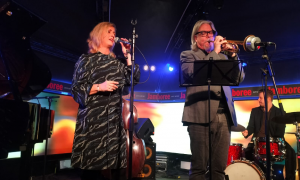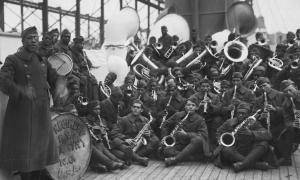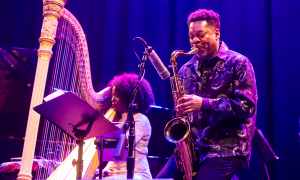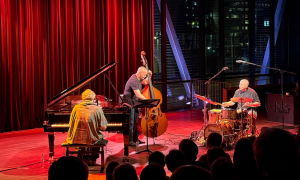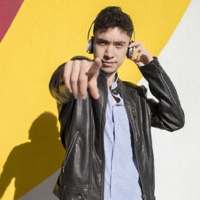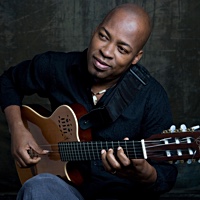Home » Jazz Articles » Interview » Anat Cohen and Oded Lev-Ari: On Togetherness, The 3 Cohe...
Anat Cohen and Oded Lev-Ari: On Togetherness, The 3 Cohens and The Art of Interaction
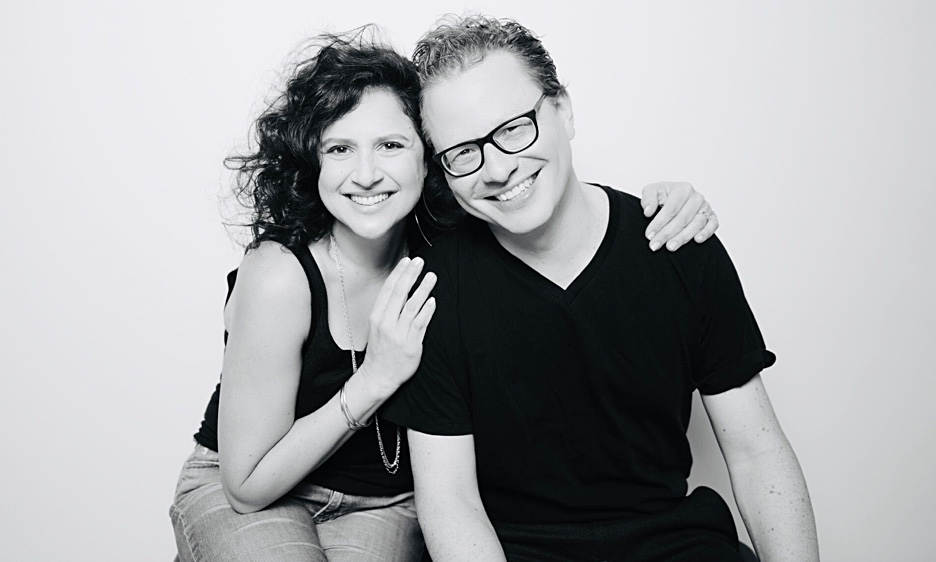
Courtesy Shervin Lainez
Taken in conjunction or apart, those occasions offer a clear opportunity to bask in the glow of accomplishment(s). But when it comes to serious musing on their lives in music, Cohen notes that a new collaborative release ties everything together best: "More than any of those moments, having the album Interaction come into being brings much greater reflection because it touches on our history, our friendship, on family, and on the fact that Oded has been part of this since we were all students, with no idea that we would ever become professionals." A live recording with Cologne's WDR Big Band, this cooperative venture binds Lev-Ari's first-class writing to the inimitable artistry of the 3 Cohens—the band Anat co-leads with Avishai and their older brother, lauded soprano saxophonist Yuval Cohen—and it serves as a culmination of an artistic alliance that's been evolving and thriving for some 35 years.
Friendship, First Impressions and Professional Pathways
Today, Anat and Oded are quick to laugh together, finish each other's thoughts and naturally complement—and compliment—one another. And it wasn't so different at the start. They became fast friends as teenage classmates at the Thelma Yellin High School of the Arts in Israel, bonding as dog lovers and music/jazz enthusiasts, and Lev-Ari developed near-instant respect and awe for the telepathic rapport exhibited by Cohen and her siblings. "I remember standing there," he relates in the liner notes for Interaction, "transfixed by the way their musical lines swerved and wove around each other in an organic, contrapuntal interplay. One would start a musical phrase, and another would imitate or complete it—or even foreshadow its conclusion, to the frustration of the originator, as if to say, 'I know what you're going to do,' or 'Corny! Find something else.' Another, seeking some space and respite from their verbose siblings, might begin a rhythmic phrase far away from the high register occupied by the others, only to find, mere seconds later, their siblings right alongside, responding to and reworking the rhythm, phasing and transforming the original idea."Going on to recount the sights that followed those incredible sounds, Lev-Ari relates the image of sister and brothers in absolute revelry and loving rivalry—three sympathetic souls bound by DNA, life's daily flow, a belief in the power of music and a yearning to pursue it full throttle. "We grew up playing together and we were all eventually students in the same conservatory in Jaffa," Cohen notes. "They had a big band, a group playing the music of New Orleans, a youth orchestra; and we were doing concerts, we were gigging, we would play openings of community centers. So we had the experience of performances together. Oded was not part of that, but the siblings were. We were all in the same orchestras and we traveled abroad with each other to play. So we got a taste of what it is to really be a musician. We had the discipline at home, the discipline from the teachers, the discipline from the schools we attended, and the performance life. And Oded came into the mix really early on. In high school, he and I were in a quintet that performed. We did some shows and gigs through the school band. And it kind of hooked us."
Lev-Ari, a part of the Cohen circle from that stage onward, forged his own path as a writer. Becoming the house arranger for one of the biggest talk shows in Israel, he quickly found his footing and honed his professional chops at an early age. "It was called Dan Shilon—Live!, and it actually won an International Emmy," Lev-Ari shares while likening it, in format, to The Tonight Show. "All of these guests would be talking. And sometimes there would be a singer that would perform, who would work with the house band if they didn't have their own band. So I would get a cassette tape—this is back in the '90s, remember—and it would have the song on it. And then I would make a chart for a ten-piece band. I would write it overnight and they would rehearse and perform it the next day." It was a job that came with certain pressures and expectations, but it helped solidify Lev-Ari's skills with the pen. "They would have to read it down and it would have to be perfect, basically. There was no time for mistakes because the rehearsal was the sound check. So that was my professional training, in a way. Anat wasn't part of that band, but she would sub later, as time went on."
Family Matters—Formalizing The 3 Cohens
Prior to Lev-Ari's entrée into the familial clique, music was already inextricably woven into the relationship(s) of the Cohens. But Anat admits that they might have taken that connection for granted until one of life's curveballs later altered one brother's trajectory:Well basically, here you have three siblings who grew up together but didn't really understand that they had a special, unique bond. Even though we went to the same places and were in the same bands and we all went to Berklee together, it didn't really register. The first time we really played as siblings was for a Berklee compilation—we just recorded one track. And it wasn't until Yuval needed an operation where they opened his spinal cord and took out a tumor and he had to relearn how to walk and how to play [that we put everything in perspective]. That was in 1997 and he went back to Israel. And suddenly this kind of obvious thing where the three of us are musicians and sometimes we can play together was something we didn't have anymore.
The older brother who we followed all our lives was suddenly handicapped and in a wheelchair, learning to function again. So when we were going back to Israel we thought, "Oh, let's try to play together because we haven't had this now," and it was such a joy when Yuval started to play again. When he started to gig we would play in the band or just sit in and it became much more precious. You know, once you don't have something you learn to appreciate [what you had and treasure it if you manage to get it back].
Having largely found his musical stride again by 2002, Yuval secured a gig in Poland and asked Anat and Avishai to join him. That marked the first official 3 Cohens performance and proved to be an eye-opening experience. "We realized that we truly come from the same background and we really have the same musical understanding and sensitivities, and we saw that there's something very special here," shares Cohen. Not long after formalizing their family band, the 3 Cohens entered a studio in Tel Aviv and made their first album—the aptly-named One. A completely self-produced effort recorded in 2003, its creation predated the birth of the label that would become a base of operations for the Cohens' projects and a taste-maker within the entire jazz sphere.
Anzic Aloft
Nowadays nearly every artist has their own imprint, but that wasn't the case in the early-to-mid aughts when Anzic Records came to be. Established labels signing artists was still more the norm, though fewer and fewer were rolling the dice on relative unknowns and the financial end for musicians simply didn't make sense. "I realized at the time that the big labels were already less interested in jazz," Cohen confirms. "And there were all kinds of deals being offered where musicians would go in to record and then they would have to buy their own albums from the label in order to have them, and it wasn't made clear what was even being done for [or to promote] the album." About to record her first solo date, Cohen wasn't fond of the idea of investing her time and energy only to have to buy her own albums from someone who couldn't give anything of real value in return. "And that's kind of what brought me to think that maybe I could do it on my own," she admits. "Oded, together with our original partner Colin Negrych, was key in the process of setting things up and figuring things out. Oded was really the mastermind of how to approach the industry—the ever-changing industry, I should say, because almost nothing that applied in 2005 can apply today."Lev-Ari, fascinated by the internet in the early 2000s—specifically looking at its ability to link culture and commerce—wound up working as the Director of Content for Andante.com, hailed by The New York Times as "the gold standard among classical music Web sites" in that era. That role led him deeper and deeper into this territory. "I'm very curious as an individual—sometimes to a fault because it's very important for me to follow things down a rabbit hole in certain instances—and I really like to figure things out for the sake of figuring things out," he shares. "And because I had that background and curiosity and wanted that challenge to learn more about the ins and outs of the music business, it made sense for me to work on this."
Anzic—a lexical blend of the first syllable of "Anat" and the second syllable of "music" (with a spelling tweak)—launched in 2005 with Cohen's well-received debut, Place & Time. The label would go on to serve as a home for her critically acclaimed, wide-ranging discography, but it also took on broader dimensions, an intention that both supported her musical milieu and offered needed diversification. "Once I realized I wanted to do this, I thought, 'Wait a second, nobody will really talk to me if it's just me. We need to create some sort of a catalog and group, and use the community,'" Cohen explains. "So we decided to gather these people, who really became the initial artists with Anzic."
Throughout its two-decade existence, the imprint has shepherded projects from a wide range of associates. At one time or another there have been drummer-led dates from the likes of Duduka Da Fonseca, Ernesto Cervini, Daniel Freedman, and Jared Schonig; vocal releases spotlighting Amy Cervini, Melissa Stylianou, and Hilary Gardner, as individuals and as one in the trio Duchess; multiple albums from leaders such as tenor saxophonist Joel Frahm and pianist/keyboardist Jason Lindner; and single—and singular—statements from the likes of bassist Joe Martin, violinist Sara Caswell, multi-instrumentalist Tal Mashiach, vocalist Nicky Schrire, and the GTO Trio, among others. The label also ushered recordings from Yuval and Avishai, respectively, into the world and delivered Lev-Ari's lone leader session, Threading. Of course, Anzic also played host to every 3 Cohens studio album following their debut—2007's Braid, 2011's Family and 2013's Tightrope, the last two of which were co-produced by the siblings and Lev-Ari—and it now serves as residence for their first live recording.
The Art of Interaction
Recorded on June 16, 2022 in front of an attentive and enthusiastic concert audience at the Kölner Philharmonie, Interaction plays as the pinnacle of togetherness, with the 3 Cohens, Lev-Ari and the WDR Big Band operating at the apex of unified expression. Its existence almost seems preordained, but it took an offhanded conversation to set the wheels in motion. "This really started brewing after a Tentet concert in Monterey in 2019," Lev-Ari reveals. "Anat's manager at the time, Scott Southard, saw the band and we were just talking when he said, 'Wouldn't it be great if [you] had a bigger canvas?' Not that the Tentet is a small canvas, of course. But we always describe it as the smallest large ensemble we can imagine." Proposing the idea for a big band album, Southard really piqued the arranger's interest.Once enamored with this format and instrumentation, Lev-Ari had developed ambivalence toward strict big band writing over the previous two decades. Hearing something different instead—sounds akin to Nelson Riddle's modified orchestral big band charts for Frank Sinatra—he had artfully skirted the standard by adding a cello section to his Anzic Orchestra charts for Cohen's Noir and kept that string ideal in place for his own scaled-back large ensemble on Threading. But now, the thought of returning to the established big band setting, with the weight of more significant experience on his side and the Cohens right beside him, led Lev-Ari to accept Southard's generous offer of assistance.
"Basically, if my recollection is correct, he asked 'How can I help?' And I said, 'Well, one thing that I was never really able to do is to connect to these incredible bands in Europe, like the WDR. I think I'd be a really great match and I was never able to really figure out how to work with them. If you could help there, that would be great.'" That's all that Southard needed to hear. Several months later, he reached out and had all of the ducks in a row for this collaboration to take place in mid-2020. The pandemic put a pin in that initial plan—"nothing was happening anywhere in June of 2020," Lev-Ari states matter-of-factly—but after a pair of postponements, it came to fruition two years late(r).
While plotting out the program in advance, there was a conscious effort to represent each headliner as a composer and pay respect to seminal influences. And with regard to all of that, Lev-Ari's charts prove both expansive and true to sources. "I think the challenge for Oded," Cohen explains, "was to think, 'What can I do with this composition and is there something I can envision in creating the tapestry for a big band to create something else—new or different or the same, within what exists there.'" So Oded really opened the door for us and said, 'Give me some suggestions. What do you think will work?' And then we shared ideas and we let Oded have complete latitude to envision everything [on his terms]. We had the imagination when composing the songs, and then he, as the arranger for this kind of project, had to look at it from another angle and think, 'This can become something else!' So there are definitely very broad canvases here and very large palettes of colors that Oded had the freedom to use knowing how we play."
"I had this urge to figure out how to work with the things a big band can do really well, natively," Lev-Ari shares. "A good big band can swing and play together and have an amazing ensemble sound that punches you in the gut. So the thought was to take that and infuse that with the things that I also find interesting about music that sort of drove me away from big bands for so long—maybe that they're naturally a little too big to get this very fine kind of interaction between the musicians. And in a way, the 3 Cohens is the perfect agent to inject into a big band to promote this by example. Because you have this crazy frontline that is the definition of interaction. That's what they do. That's the essence. And the goal in constructing the program was to create pockets within the music—in the arrangement—that allow the big band to take example from the front line and have that feeling seep into the playing of the big band without me having to explain it."
"Interestingly, the process was like a science experiment," he goes on to reveal. "I had a week with the big band without the Cohens where we worked on the arrangements and everything was dialed in. And then they came in the week after that. So [when we initially] rehearsed, no one was playing [the Cohens'] parts. It was just like an empty canvas in those spots. And then they arrived, and then everything really sprung to life. Not only since you now had the lead voice—you had the melody and the band could respond—but because the big band's phrasing was taking shape based on what they were hearing from the front line. And that's the kind of listening that you hope to promote when you work with a large ensemble. That's the kind of chamber-like or, in jazz parlance, combo-like intense listening—interaction, really—that you desire in this type of format."
Illustrating those values from the start, the program opens with an inspired stemwinder of a take on Avishai's "Shufla de Shufla." Excitedly shuffling along, that number offers a wink or two to Charles Mingus and his "Haitian Fight Song," finds pianist Billy Test in the zone, showcases some Cohen camaraderie and defines integration in action. An exhilarating listen from beginning to end, it highlights Lev-Ari's writing panache, the siblings' remarkable chemistry and the WDR Big Band's many strengths. Yuval's "Catch of the Day (For A&M)" follows, swinging with verve, offering strong solos and delighting with a hip thicket of Cohens sans band. Then there's "Tiger Rag," a revamped classic from the dawn of recorded jazz history. A brash brush with NOLA niceties—a Crescent City groove welcome, extroverted stands, trad jazz polyphony—it's a party for the soul and senses.
Avishai's "Naked Truth Pt. 2"—a movement from the eponymous suite constituting his 2022 quartet release—serves as the album's centerpiece and stands in stark contrast to everything that surrounds it. "The way Avishai described it, that piece was born very freely in the studio," Lev-Ari shares. "So the form is very fluid, based on physical cues that he was giving to indicate when to move to a new section. And that's obviously not something that's very easy to do or represent in a big band situation so I had to nail down the form and I had some questions for him. I also had to transcribe the tune because there wasn't any type of chart. I think that was the most extensive back-and-forth that we had for any piece during [preparations]." The end result, with an absorbing trumpet introduction leading to a slow 9/8 flow, is a stunning mood piece with arced expressions and arresting ambience.
Giving the WDR Big Band a short break, the 3 Cohens step out for a delightful a cappella take on Gerry Mulligan's "Festive Minor." A piece that's held sway over the siblings since they were kids, it frames their uncanny connectedness without any outside involvements. Bringing the band back into the picture, Lev-Ari's "Trills & Thrills" delivers intrigue in close-voiced harmony and electrified air. And Anat's "Footsteps & Smiles"—something of a polychromatic boogaloo—closes out the album with unbridled joy and prismatic punch. A testament to cooperative artistry, it's the perfect capstone for this outsized affair.
Addressing the entire experience in the most positive of terms, Lev-Ari, speaking for his close companions, is quick to praise the WDR Big Band: "It's a phenomenal group. They're very receptive to music that maybe is not necessarily what they play every day—extremely open, actually. And they're so welcoming. Having the opportunity to dig deep over a week of rehearsal and then a week with the Cohens there was just an incredible luxury [that took things to a different level]. You hear it in the music—there's a freedom there that you don't normally reach. It was just one hit—a bunch of rehearsals and then a single show—and that setup works there. It was wonderful and we just want to express our thanks to the WDR Big Band.
Coda: Music Is The Answer
Moving past talk of specific albums, anniversaries and events, questions about the very nature of continuing friendship and future plans are presented. Music, unsurprisingly, is at the heart of the answer(s). When asked about the key or secret to their enduring partnership, Lev-Ari immediately makes that point: "Anat and I bonded musically as soon as we met, and that is something I can't explain and have learned to cherish over the years. I don't know that it's a secret—and if it is, it shouldn't be!—but I think the key to our lasting musical partnership is to always serve the music; if we take care of the music, everything else falls into place."Cohen, who graciously addresses a query about what lies ahead, brings everything back to sound logic, too: "At this point, where the world is so uncertain, it's so hard to get through the day without these very dark clouds coming in from so many directions, the heart is so heavy and there's so much fear, I feel like the only bright light is music. The music is the only place that can stay pure and I want to keep it pure. I want to keep it away from the business part of things, keep it light and retain the part that I can connect to—that we can all connect to; the part inside musicians where we can connect to our inner child; the joyous part of being and exploring; the fearless part. So I feel like, in general, I want to figure out how to do that, how to use music as a vessel to connect to that."
Related Photos
Tags
Comments
About 3 Cohens
Instrument: Band / ensemble / orchestra
PREVIOUS / NEXT
Support All About Jazz
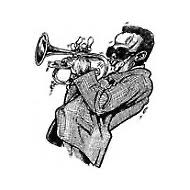 All About Jazz has been a pillar of jazz since 1995, championing it as an art form and, more importantly, supporting the musicians who make it. Our enduring commitment has made "AAJ" one of the most culturally important websites of its kind, read by hundreds of thousands of fans, musicians and industry figures every month.
All About Jazz has been a pillar of jazz since 1995, championing it as an art form and, more importantly, supporting the musicians who make it. Our enduring commitment has made "AAJ" one of the most culturally important websites of its kind, read by hundreds of thousands of fans, musicians and industry figures every month.


